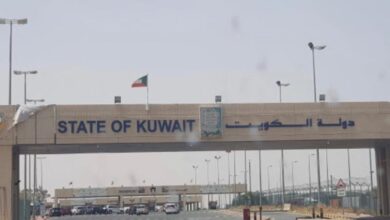Nationality forging reaches dangerous levels, posing threat to Kuwait

After prolonged silence amidst intense political pressure, Saif al-Qanun took decisive action during the reform era, stepping forward to distinguish justice from injustice and to safeguard the state, its legal framework, and its security institutions.
A security source told Al-Rai that the process of investigation and enforcement of the law remains consistent in the operations of the Supreme Committee for the Investigation of Kuwaiti Nationality. The source emphasized that all cases undergo thorough investigations, inquiries, and file reviews at multiple stages, followed by the implementation of the necessary legal procedures.
The source highlighted that the committee continues its efforts by making decisions on cases involving forgery, dual citizenship, and Article (8) violations, emphasizing that there is no distinction in handling cases of dual citizenship, whether Gulf, foreign, or Arab. “The law is the same for everyone,” the source affirmed. They also noted the extensive efforts of investigators in thoroughly examining any file where a single instance of forgery is detected, ensuring the integrity of the entire file and verifying the absence of additional forged cases within it.
The Supreme Committee, in a meeting chaired by First Deputy Prime Minister, Minister of Defense, and Minister of Interior, Sheikh Fahd Al-Yousef, decided to revoke and annul Kuwaiti citizenship for 5,838 cases. These cases are now being prepared for submission to the Council of Ministers for further action.
The Ministry of Interior announced that the committee’s decision to revoke citizenship was based on Articles (10 and 11) of the Kuwaiti Nationality Law No. (15) of 1959, and its amendments. This included 4 cases of dual citizenship, 128 cases of fraud and false statements (forgery), and individuals who acquired citizenship through dependency under Article (21 bis A). Additionally, 5,706 cases were revoked under Article (8), involving individuals from 54 different countries as per Article (13, Paragraph 4) of the Nationality Law.
The source emphasized that the cases examined by the committee daily reveal the extent of the tampering with Kuwaiti citizenship. The serious risks exposed by these files serve as a powerful response to those advocating for leniency in handling the discovered cases.
The source stated that Forgery has led individuals to positions that pose significant and dangerous threats to Kuwait, its security, and its people. There can be no leniency in this matter under any circumstances. Kuwait is a red line, its nationality is a red line, and its security is a red line.
What is the role of employees in fraud?
In response to a question about the role of employees in cases of discovered forgery and the registration of individuals who are not genuine in nationality files? The source clarified that in all forgery cases, the individuals involved submitted documents and files that appeared legitimate at the time, accompanied by witness testimonies. As a result, there was no reason to doubt the authenticity of these records initially.
However, with the advancement of modern scientific methods, such as DNA testing, which definitively eliminate doubt and settle the matter, along with ongoing investigations, inquiries, and additional information, the cases are now being thoroughly scrutinized.













